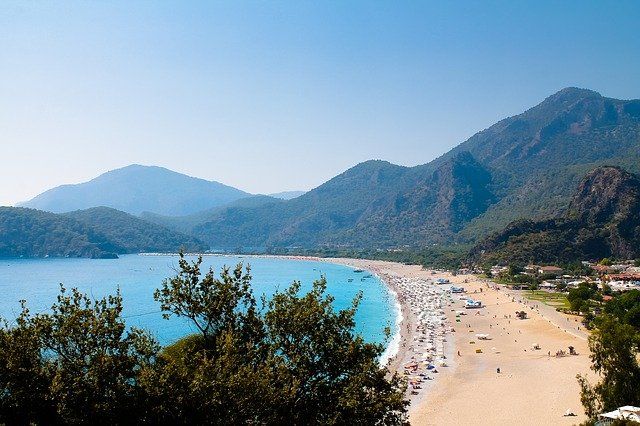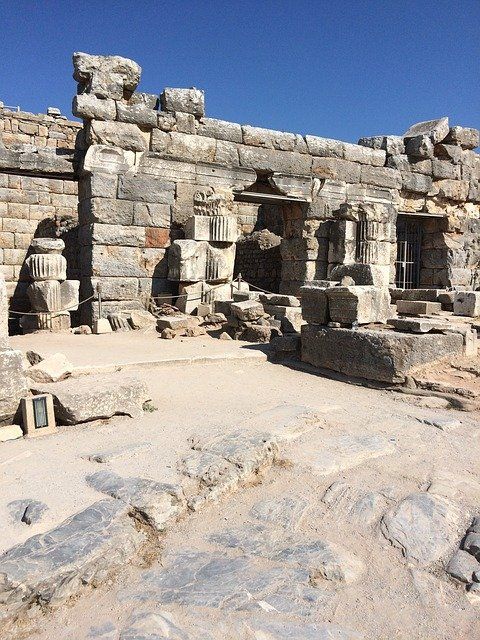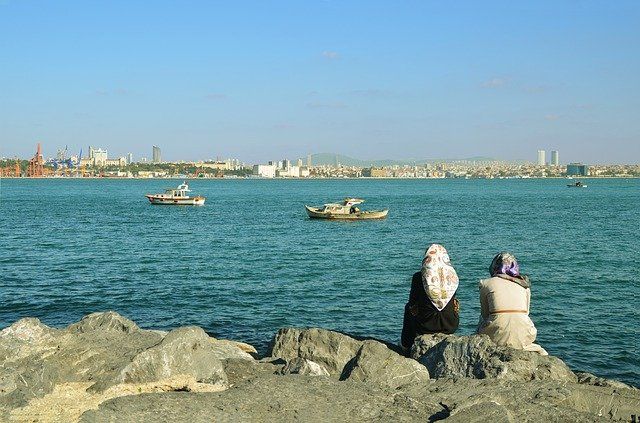
The gospel and Turkish people
Turkish people are characteristically friendly, hospitable, outgoing and religious. The western media and secularism are eroding fundamental Islamic belief, and so most Turks, in an effort to be reconciled to modern thinking and still retain their ‘faith’, have liberalised Koranic teaching much as liberal Christians have done with the Bible. Even among the minority of fundamentalist Muslims there are scholars who are promoting an understanding of other faiths. In this cultural climate it is easy to engage any Turk in spiritual conversation, in any place and at any social level.
Our next-door neighbours in an Aegean town, where a church and Bible school had been founded, were approached by the police urging them to help in arresting Christian Turkish Bible students. ‘Leave them alone, they’re good people,’ replied our neighbours. Why had our neighbours spoken up for the Christians? ‘Mrs Ann, we are Muslims. The Muslim religion for us is superior to all others, but we love you all; you are good people’. This man had testified to the previous owner of a building, on behalf of Christians negotiating to buy it for a Bible college, ‘You can trust these people. I bear testimony that I have never met people as righteous as they are’.
Mary or Paul?
One day, my husband and I went to visit the mayor of this same small town of 30,000 inhabitants. The town receives much revenue from the Vatican each year. It possesses what many claim to have been the Virgin Mary’s house. This has been a place of pilgrimage for tens of thousands of Catholic tourists, and even Muslims tie their prayer requests to branches of trees outside the house. Inside the office of the mayor (an influential and powerful man in the town) was a large black statue of Mary, given by the Catholic Church, yet hidden behind a large palm tree to quieten his Muslim conscience!

We told him that Protestant Christians were numbered among his tourists, and that, more important to them by far than ‘Mary’s house’, was the ancient site of Ephesus, where Paul, the Apostle to the Gentiles, had lived and taught in the house of Tyrannus for three years. We handed him a New Testament opened at Ephesians. He snatched the book from us in excitement and said, ‘My town in the Incil [New Testament]! I had no idea! How wonderful! I must read it. Can I keep this?’ He gave us permission to write a book about Ephesus to be given out to tourists. He gave his full support to the new Protestant church in his town. We heard later that the mayor of Bodrum, a friend of his, had requested a Turkish pastor to plant an International Protestant Church at Bodrum for tourists to attend.
Compassion extinguished
The misery of poverty is a cause for heartbreak. It can be observed in Istanbul in winter, for example, when homeless street-children sleep over warm-air vents to escape the bitter cold. As I passed a group of three teenagers, I noticed two of them trying to arouse the third without success. I joined them in trying to rouse him. His cheeks were unhealthily flushed. I rushed to a policeman in the main street asking him to come. ‘What’s the use?’ he said, ‘I take them to hospital; it costs money; they’ve no money; they sniff glue; they get ill again’. ‘But you can’t let him die!’ I rejoined. ‘Well I can’t do anything!’ In an effort to motivate him into action, I said, ‘This is your holy holiday following the month of fasting. God will not hold you guiltless’. He looked at me and said, ‘You’re right’, and followed me. A minibus stopped and people shouted, ‘Is he dead?’ ‘No’, I shouted back, looking into their uncaring faces. Thankfully the boy finally regained consciousness.
The one hundred per cent inflation, low salaries, and seven million inhabitants packed into Istanbul, have extinguished most people’s compassion for others. Opportunity arose to explain to the group that Christians read a book that tells them to love their neighbours as they love themselves.

Openly saying that Jesus is God outside the pulpit usually ends in continuous argument. But a slow, firm setting forth of the teaching of Scripture, by word and life, undermines the Muslims’ confidence in their own religious position, as they realise the power and quality of the gospel. In a society characterised by unrighteousness, a Christian must often suffer through interaction with society’s endemic lies, inconsistencies and unreliability. Yet he must also show love and witness to the people of the Saviour.
The pastor’s wife
Sev, having once confessed Christ, had rejected him for twenty-five years, when she saw the sacrifice she must make to follow Christ as his disciple. She broke her husband’s heart, himself a Christian pastor, and for years consistently filled his and their children’s lives with conflict and sorrow. When she was diagnosed as having incurable cancer, Christians took her to a top cancer specialist, who tried every way to save her life. At the end, no longer filled with bitterness against her husband, but broken by fear of death and separation, she asked the believers to come and pray for her. Finally, before she died, she gave evidence of having repented and asked the Lord for forgiveness.
On her fiftieth birthday, and lying in agony, Sev was surrounded by the love of her husband, six children, mother and two sisters, as well as other Christian believers. We knelt by her bed and wept, remembering that we had witnessed her marriage thirty years before. Death is the last enemy. How very final it is! What of those seventy million Turks — where will they spend eternity? May God give them grace to turn to the Great Shepherd and Bishop of souls




